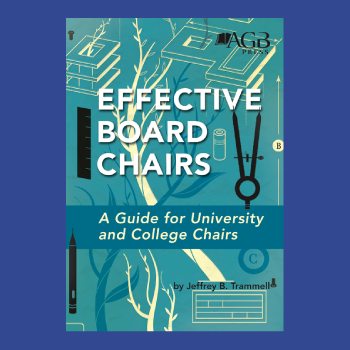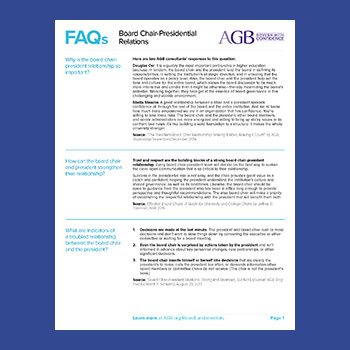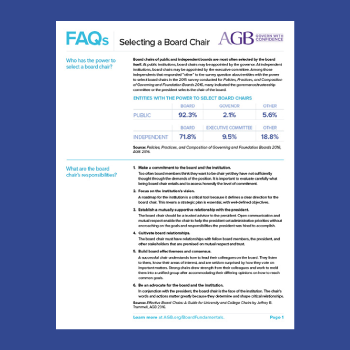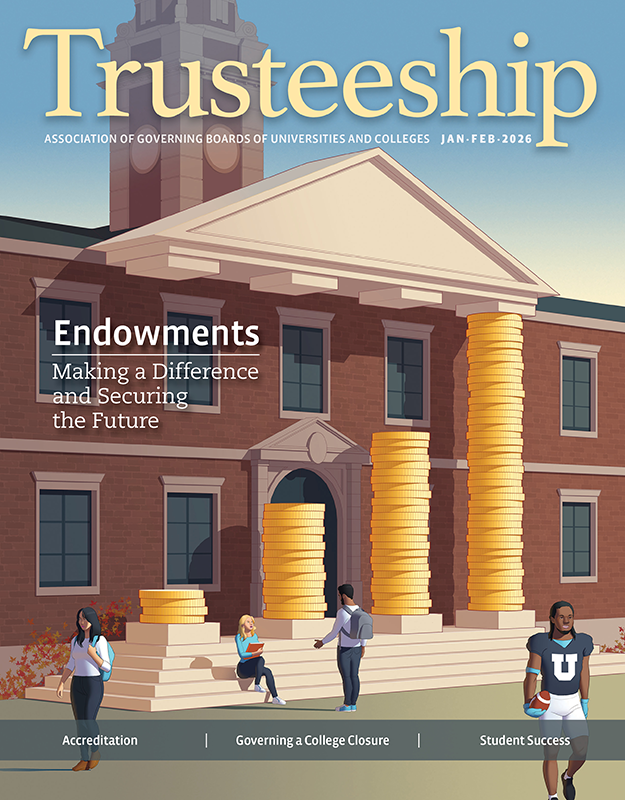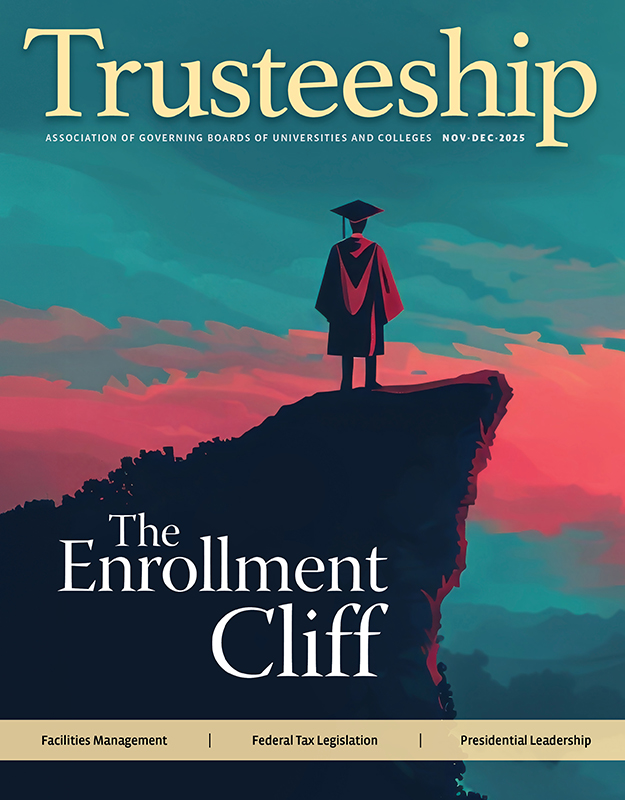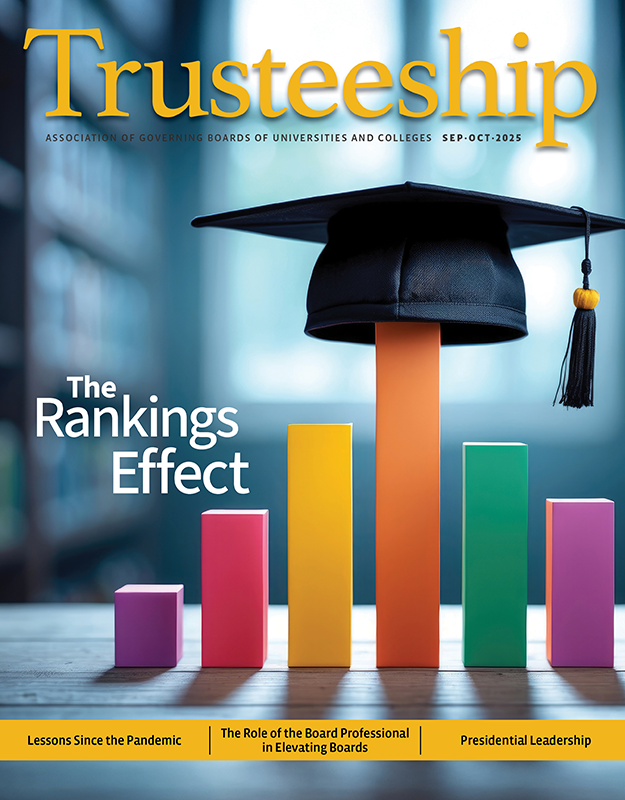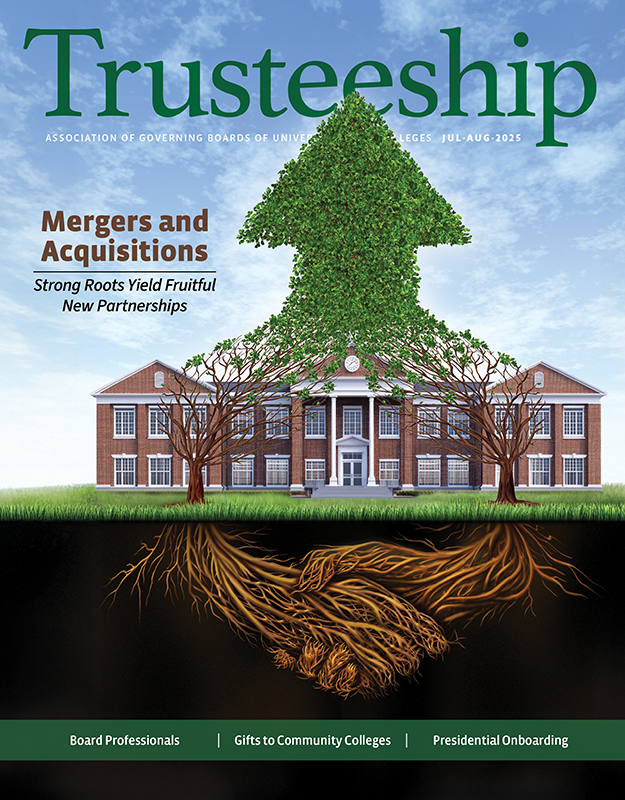Why this is important.
Effective board chair leadership is essential to ensure higher education governing boards serve their communities with distinction. Successful board chairs are resolute in pursuing their institution’s vision and goals by acting as a pragmatic internal negotiator as well as an articulate external voice on behalf of the institution. Today’s board chairs deal with challenges that were largely unknown to their predecessors, and AGB aims to provide guidance for board chairs as they not only navigate these challenges, but also strive to leave a positive legacy of enhancing the institution they serve.
Source: Effective Board Chairs: A Guide for University and College Chairs by Jeffrey B. Trammell, AGB 2016
Questions for boards.
Click below to reveal key questions for your board to consider:
Goals
Consequential Questions:
- What kind of board chair do I want to be? What kind of board chair does my board need?
- Have I made certain that my institution has an agreed-upon vision of what it aspires to be, and have I secured board support for the vision?
- As the board chair, how can I clarify and reinforce mutual expectations and goals?
Source:
Effective Board Chairs: A Guide for University and College Chairs by Jeffrey B. Trammell, AGB 2016
Structure and Processes
Consequential Questions:
- Do I know what is required to conduct productive board meetings? How can I increase productivity and engagement during our virtual board meetings?
- What is required to keep my board informed and engaged? How engaged is each member?
- Does our existing committee structure fit today’s needs? If not, do I know what to do to change this?
- Who would be the most effective chair of each committee? Do they currently hold these positions?
Source:
Effective Board Chairs: A Guide for University and College Chairs by Jeffrey B. Trammell, AGB 2016
Effective Shared Governance
Consequential Questions:
- Do I fully understand the dimensions of my power as a board chair—its limits and opportunities—leverage my power to get things done?
- Do I have a respectful, effective relationship with the president?
- Do I actively build strong relationships with other key players, including fellow board members, administration, faculty, students, and alumni?
Source:
Effective Board Chairs: A Guide for University and College Chairs by Jeffrey B. Trammell, AGB 2016
Recommended resources.
We carefully curated these staff-picked resources for you:
Effective Board Chairs: A Guide for University and College Chairs
2016
Jeffrey B. Trammell
Board Chair Bundle
Book Bundle
AGB
Selecting a Board Chair
FAQs
AGB
Board Chair Toolkit
2021
AGB
Forum: Getting Off to a Good Start with a New President
Trusteeship magazine, July/August 2023
By Richard Chait


